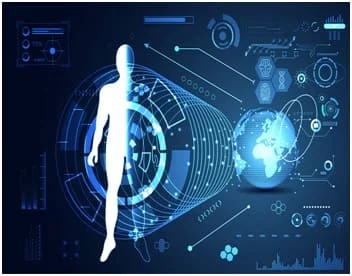ARTIFICIAL INTELLIGENCE MARKETING
Artificial Intelligence:
"The science and engineering of making
intelligent machines, especially intelligent
computer programs".
-John McCarthy, father of Artificial Intelligence
 Artificial Intelligence is a way of making a computer, a computer-controlled robot, or a software think
intelligently, in a manner similar to intelligent human beings.
Artificial Intelligence is a way of making a computer, a computer-controlled robot, or a software think
intelligently, in a manner similar to intelligent human beings.
Artificial Intelligence Marketing:
Artificial intelligence marketing (AIM) is a form of marketing that makes use of artificial intelligence
concepts and models such as machine learning and Bayesian Network, to achieve marketing goals. Here,
a computer algorithm does the work instead of humans.
Artificial Intelligence enables marketers to create highly personalized consumer experiences that cost
significantly less than traditional high-dollar campaigns. Every interaction a consumer has with a
product or solution is utilized for future optimization. Machine learning is the design and development
of algorithms and techniques that allow computers to learn.
The impact of artificial intelligence on digital marketing is large. A study by Smart Insights shows that,
out of 100 senior marketers from different industries, 55 percent have already implemented or are
considering using AI in their marketing practices.
AI Marketing (AIM) permits marketers to crunch huge amounts of marketing data from social media,
emails, and the web, in a relatively faster time. Moreover, the insights they get in a shorter time frame
helps them boost campaign performance and Return on Investment (ROI) faster. This gives marketers
and businesses more time to focus on other equally important tasks.
For many, AI is an enigma enclosed by catchwords.
But the irony is, as much as the accumulation has exaggerated what AI might do in the next years, the
reality of how AI is already used today in marketing is often underrecognized.
• Facebook uses facial recognition to recommend whom to tag in photos.
• Google uses deep learning to rank search results.
• Netflix uses machine learning to personalize recommendations.
• Amazon uses natural language processing for Alexa.
• The Washington Post uses natural language generation to write data-driven articles.
Why Use AI for Marketing?
• Sales forecasting: It is AI Marketing for gathering data about past deals. It studies data from
emails, meetings, and in some cases, phone calls. AIM can relate the data to the outcome of the
possible sales of their current and future campaigns.
• Understand customers: AI helps marketers recognize what their customer’s needs are and learn
how and when they want them. Marketers can also generate customer profiles that make it easier
for them to segregate people who are interested in their product from those who are still
deliberating on the purchase and those who are simply uninterested.
• Find the trend: AI Marketing and its capacity to analyze large chunks of data can be used to
detect upcoming trends by joining in on real-time conversations or events of their users.
While there are more ways to use AI for marketing campaigns, the below are some concrete
illustrations:
• Programmatic Ad Targeting
• Speech Recognition
• Chatbots
• Content Generation
• Dynamic Pricing
Complied By:
Lakshmi Shetty
Assistant Professor
Department of Management